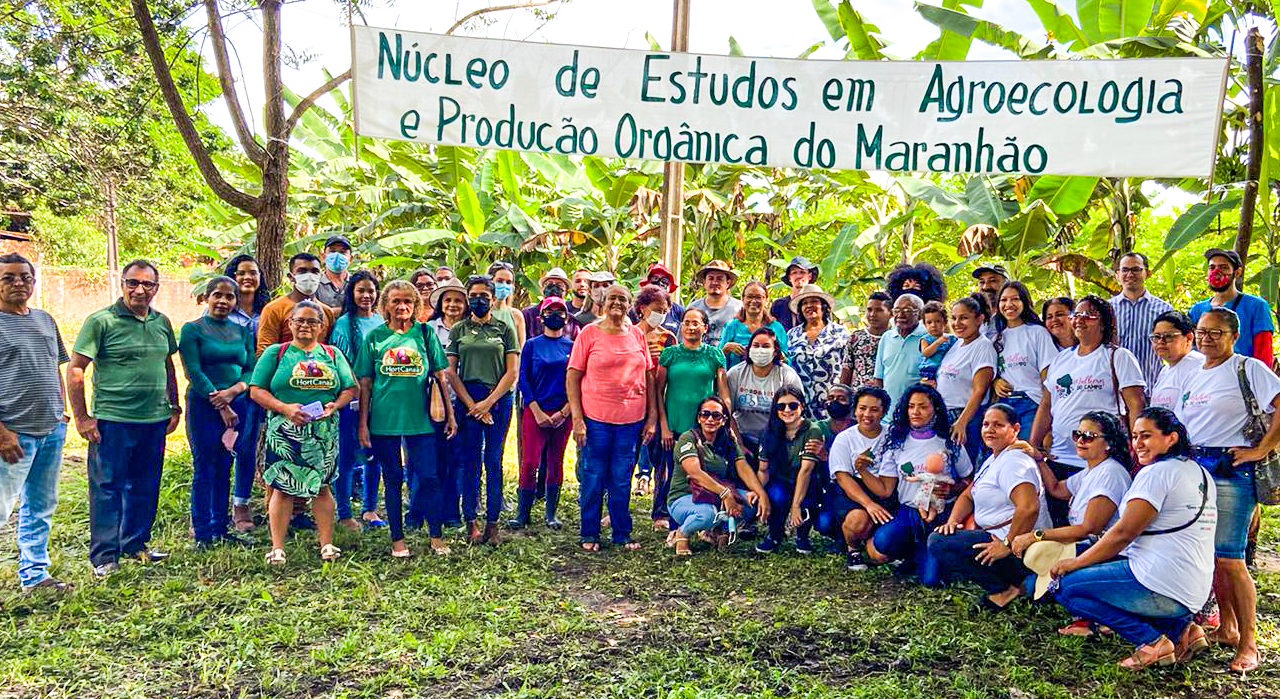Maranhão State University (UEMA) participates in the International Decolonial Day and begins its activities with a visit to NEAPO’s (Centre for Studies in Agroecology and Organic Production in the State of Maranhão) productive units
Author: Communication Advisory Board of UEMA and SDG UEMA
Maranhão State University, through the Postgraduate Program Social and Political Cartography of the Amazon, the Postgraduate Program in Agroecology, Center for Studies in Agroecology and Organic Production of Maranhão, Animal Science Course, Biological Sciences Course, and the Specialized Advisory on the Articulation of Sustainable Development Goals, is part of the programme of the 1st International Decolonial Journey – Region Focus: The Amazon Arc of Regeneration. The Institution performs actions involving traditional peoples, teachers, and students from UEMA during the period of 8 June to 2 September.
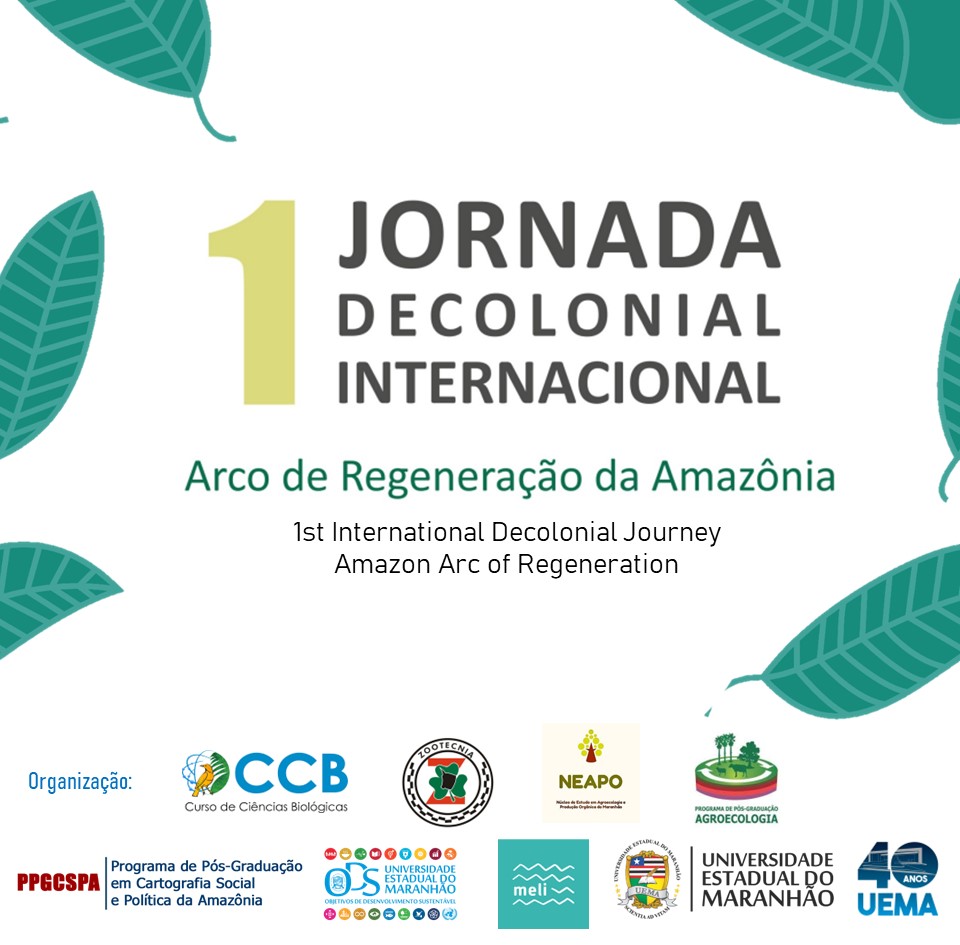
The 1st International Decolonial Journey – Focus Region: The Amazon Arc of Regeneration will hold parallel events in different locations around the world to connect and learn about the focus region, including Maranhão and Pará in Brazil. The activities carried out during the event will be connected to the themes:
– Traditional communities;
– Human rights violations;
– Historical context of deforestation;
– Current socio-political-environmental context of the region in question;
– Native ecosystem of the region in question;
– Decolonisation.
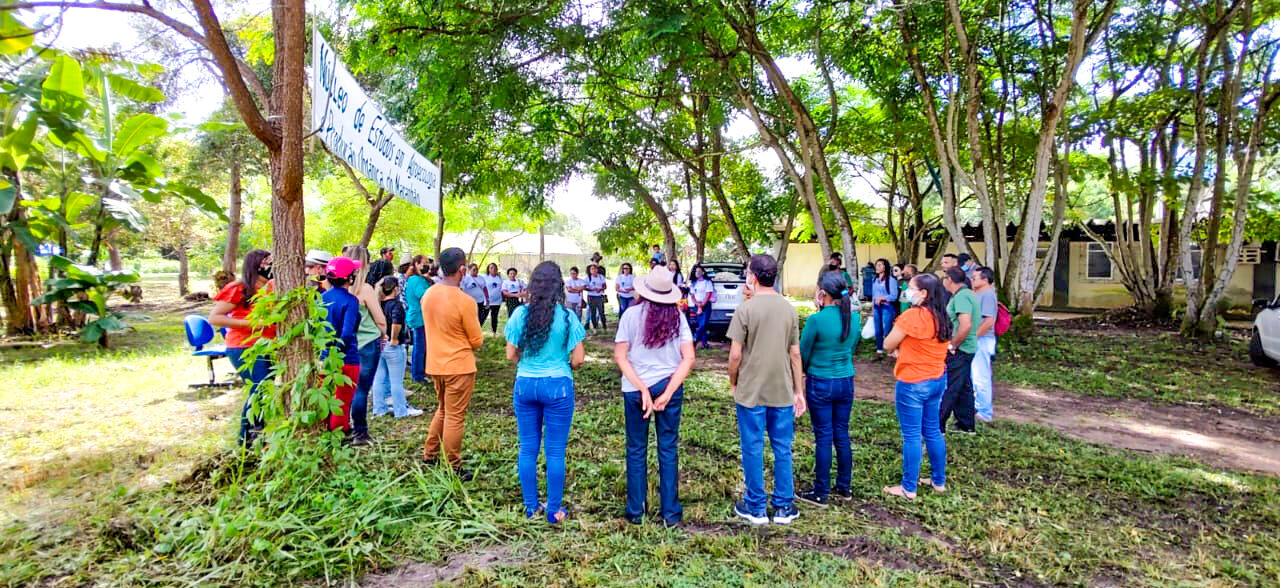
And the activities have already started!
The Center for Studies in Agroecology and Organic Production of Maranhão (NEAPO), in partnership with the Graduate Program in Agroecology, the State Agency for Agricultural Research and Rural Extension of Maranhão (AGERP) and Alimentun LTDA, promoted the 1st International Decolonial Day – Focus Region: The Amazon Arc of Regenreation with an action held on June 8 at the Paulo VI Campus, promoting visitation and dialogue in the NEAPO Learning Units.
In the opening speech we were joined by Dr Ariadne Enes Rocha, ODS Advisor Uema, Dr Maria Rosângela Malheiros, coordinator of NEAPO, Mestre Marluze Pastor, of AGERP, and Dr Thais Roseli Corrêa coordinator of the Postgraduate Programme in Agroecology.
The visit was attended by a group of 45 people composed of farmers from rural communities of the island of São Luís (Coquilho, Tajipuru, Mato Grosso, Pindoba, Cajupari, and Santa Maria), AGERP technicians, UEMA faculty and UEMA undergraduate and graduate students.
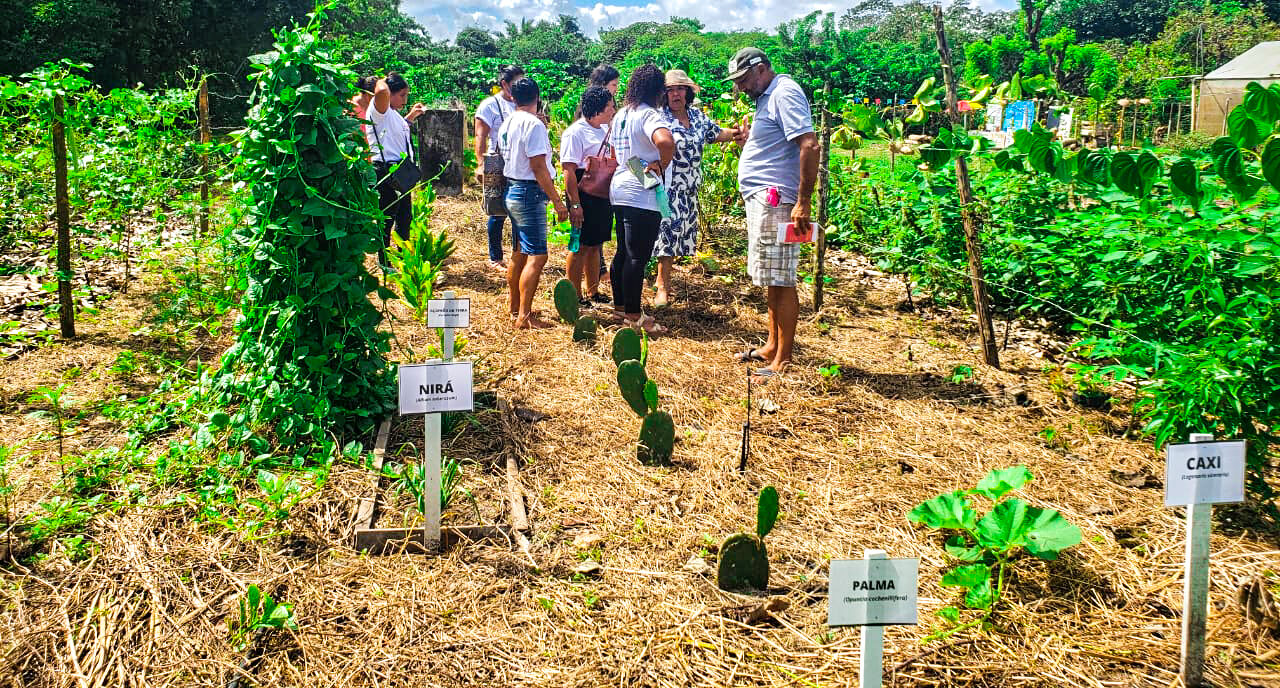
The activity was conducted by UEMA faculty and students allowing a trail of learning.
1. Agroforestry System with Native Fruit Trees (SAF):
Coordinated by Prof. Dr. José Ribamar Gusmão Araujo who showed the importance of this system for social, economic, and environmental sustainability.
2. Organic Production of Vegetables, divided into Conventional and Non-Conventional (PANC’s):
The production of conventional vegetables was presented by the student of Agronomy Raimundo Matos Pereira Neto and the Conventional – PANC’s by Prof. Dr. Josilda Junqueira Ayres Gomes who exposed the importance of insertion of these species in food, the form of cultivation and consumption, ending its exposure with the tasting of some recipes.
3. Production of Gongocompost:
Presented by the agronomy student Jefferson Fontinelle Borralho who presented this alternative production of organic fertilizer using embuás/millipedes.
4. Workshop on Agro-ecological Management of Diseases:
Taught by the students of the Post-graduation in Agroecology (PPGA) Alan de Sousa Sousa, Maria Francisca Oliveira Borba, Anne Caroline Bezerra dos Santos, coordinated by Prof. Dr. Antonia Alice Costa Rodrigues.
5. Identification and Management of Spontaneous Plants:
Taught by PPGA doctoral students Edaciano Leandro Losch and Fabio Pierre Fontenelle Pacheco, coordinated by Prof. Dr. Maria Rosangela M. Silva.
6. Ecological Restoration:
Presented by Prof. Dr. Guillaume Xavier Rosseau.
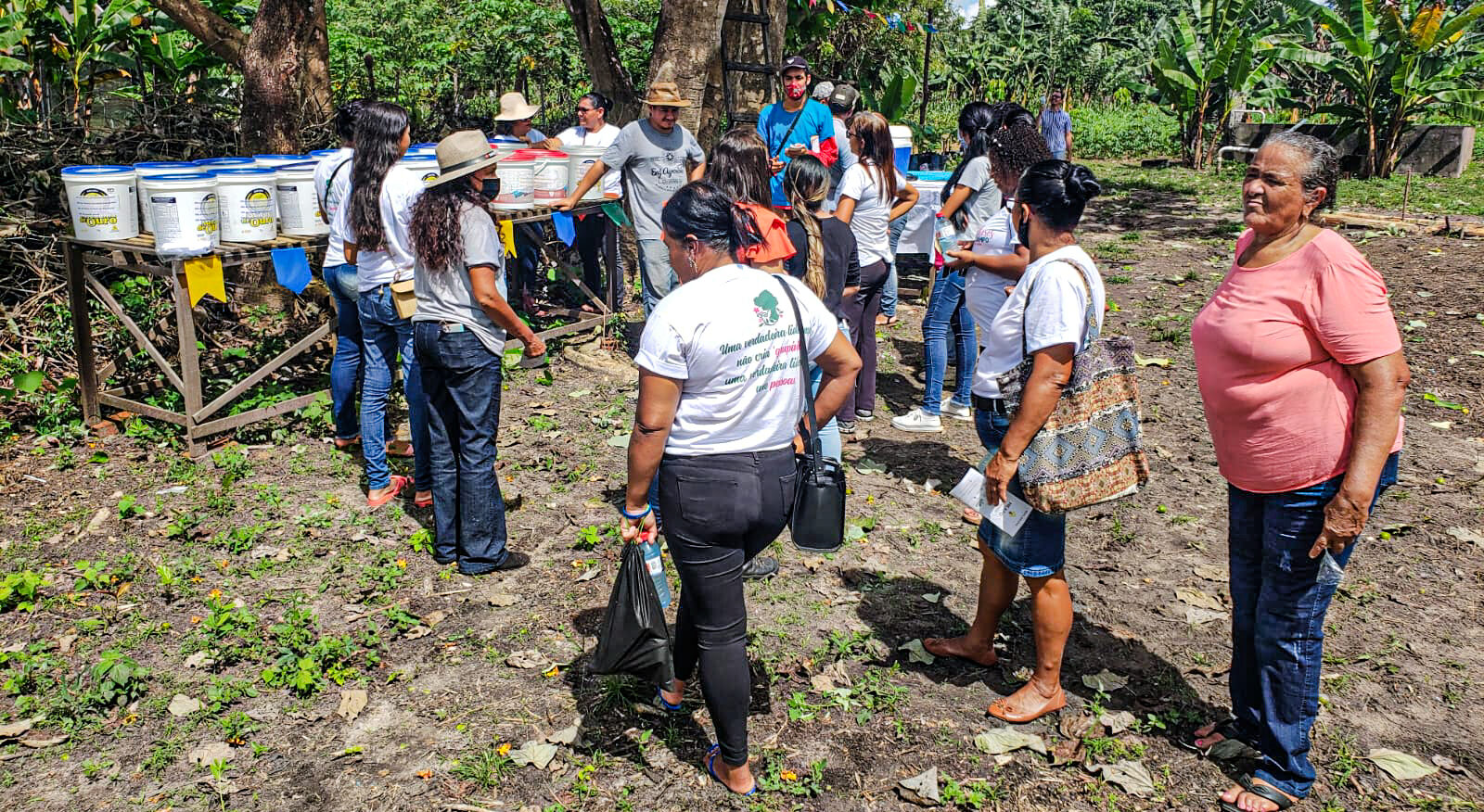
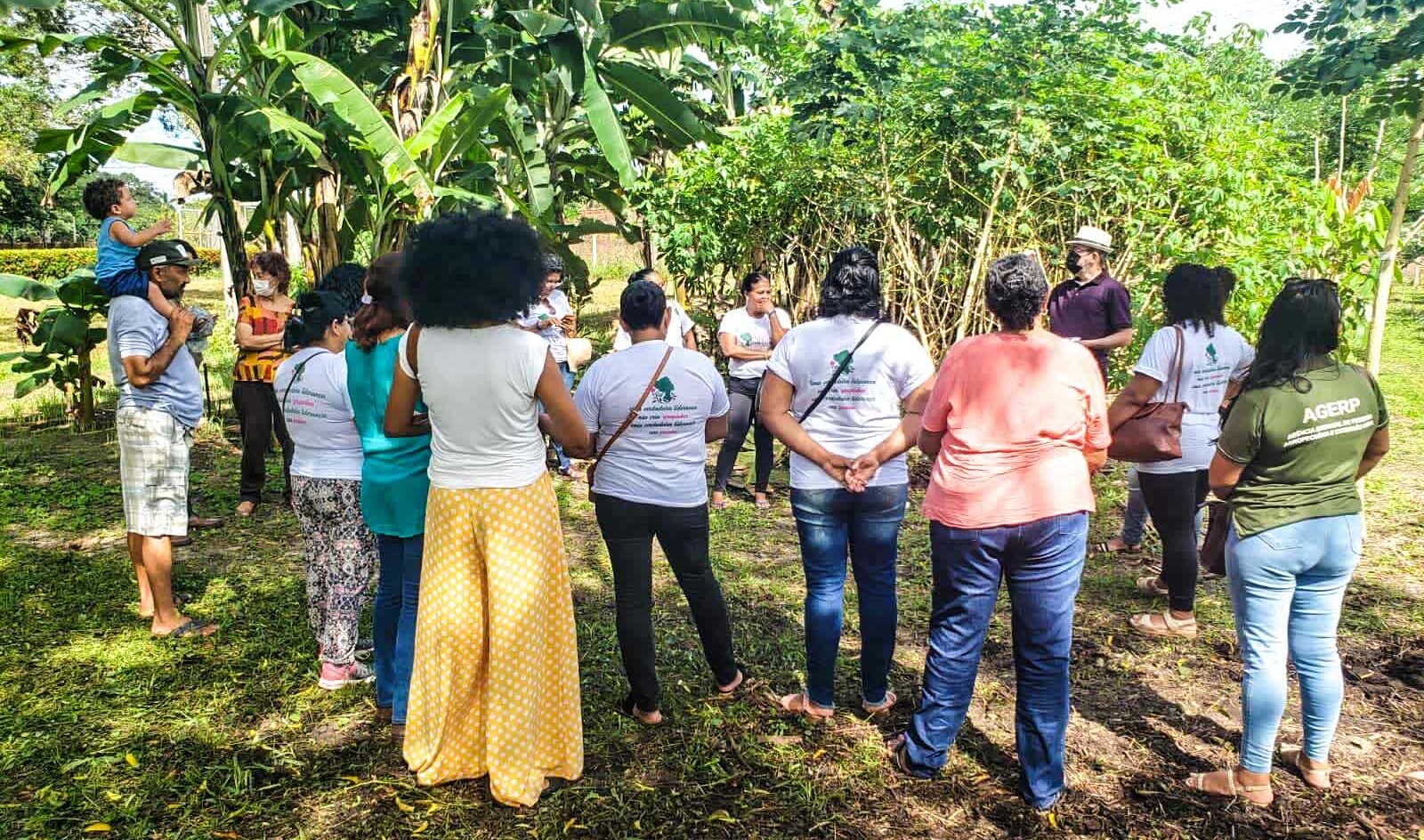
Are you in Maranhão and want to follow the activities? Check out the programme:
| DATE | ACTIVITY | LOCATION | SECTOR |
| 8 June | Visit to productive units of NEAPO, workshops on the topics: Ecological Management of Pests, Diseases and Spontaneous Plants | São Luís | Centre for Studies in Agroecology and Organic Production of Maranhão – NEAPO/UEMA, Post-Graduate Program in Agroecology – PPGA/UEMA and State Agency for Agricultural Research and Rural Extension – AGERP. |
| 10 June | Practices of Sustainable Meliponiculture and Environmental Preservation | Bacabeira | Animal Science Studies – CCA/UEMA |
| 9 August | Panel discussion – Development, Mega-Enterprises and Traditional Communities: Immobilization and Resistance | Caxias | Post-graduate Programme Social and Political Cartography of the Amazon – PPGCSPA/UEMA |
| 10 August | Panel discussion – Indigenous and Quilombola Museums in the Pan Amazon | São Luís | Post-graduate Programme Social and Political Cartography of the Amazon – PPGCSPA/UEMA |
| 11 August | Panel discussion – Traditional Peoples and Communities and the 2030 Agenda: Is Sustainable Development Possible? | São Luís | Post-graduate Programme Social and Political Cartography of the Amazon – PPGCSPA/UEMA |
| 11 August | Panel discussion – Quilombola Communities and the Violation of Human Rights | São Luís | Post-graduate Programme Social and Political Cartography of the Amazon – PPGCSPA/UEMA |
| 14 August | Meliponiculture as a Means for Sustainable Development in the Baixada Maranhense area, Arari/Brazil | Arari | Biological Sciences Programme – CECEN/UEMA |
| 21 August | Sustainability in Peri-Urban Forest Fragments: Possibilities and Perspectives for the Green Belt – São Luís/Brazil | São Luís | Biological Sciences Programme – CECEN/UEMA |
| 2 September | Deforestation in the Maranhense Amazon: Causes and Consequences | São Luís | Advisory Body Specialised in the Articulation of Sustainable Development Goals – ODS/UEMA |
Your donation can have a positive impact on the world!
Subscribe to receive our Newsletter!
Find us also at Linkedin, Facebook, Twitter
or Instagram
www.meli-bees.org
❤️

